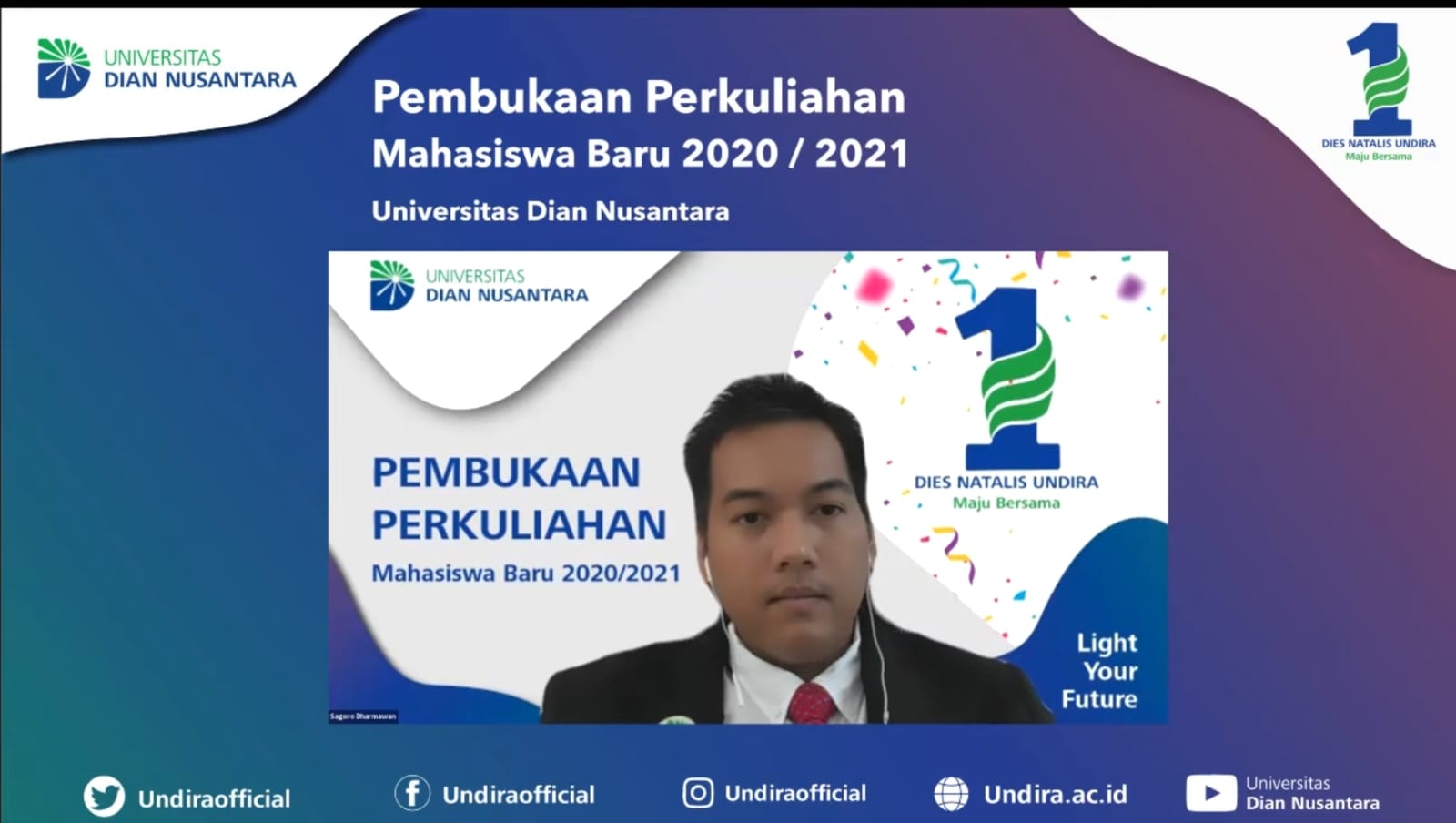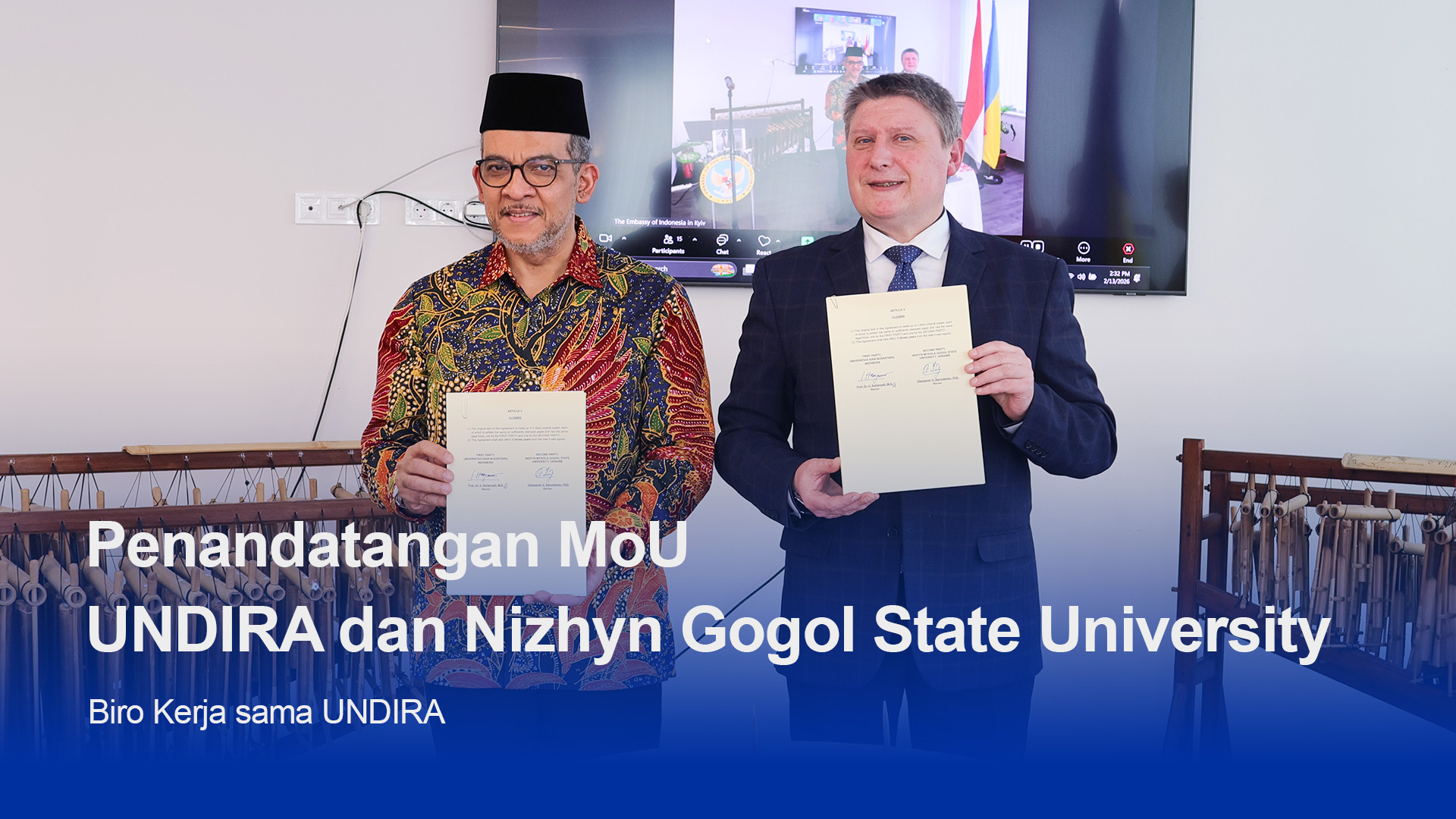Enhancing Student-Oriented Learning Methods, UNDIRA Holds a Workshop for Lecturers

On August 31, 2024, Universitas Dian Nusantara organized a workshop for lecturers aimed at enhancing teaching competencies for students. The event took place in the 6th-floor auditorium of Universitas Dian Nusantara and featured speakers including Dr. Rachmawan Budiarto, S.T., M.T., a lecturer from the Faculty of Civil Engineering at Universitas Gadjah Mada, Yogyakarta, and Desi Ramayanti S.Kom., M.T., the Dean of the Faculty of Engineering and Informatics at Universitas Dian Nusantara.
The event was conducted in a hybrid format, with in-person attendance by Dian Nusantara University lecturers and online participation. The event was opened by Mr. Sagoro Dharma, Chairman of the Dian Astra Foundation. In his opening remarks, he emphasized the importance of the student-oriented learning concept, especially in the current era where most students are adept at integrating AI into their daily lives. The workshop was intended to serve as a reference for lecturers to enhance their teaching competencies, aiming to develop students who are not only critical thinkers but also competent in their fields.
In the teaching and learning process, it is important to recognize that the presence of interactive teaching methods is crucial, particularly in this era of rapidly growing AI integration. In his presentation, Mr. Rachmawan Budiarto discussed the shift from "teacher-centered oriented learning" or SCL to student-oriented learning as a positive move to support active engagement from both sides in building optimal learning experiences.
Student-Oriented Learning is an educational approach where the primary focus is on the needs, interests, and learning styles of students. Students are more actively involved in the learning process, with teachers acting as facilitators or guides. The learning process is often more flexible, giving students greater autonomy and opportunities to explore topics according to their interests.
There are four key elements in the student-oriented learning method:
- Contextual - Students are expected to interact with real-world problems within a professional scope that is relevant to the social world. This sharpens students' problem-solving skills and critical thinking.
- Constructive - Encourages breakthroughs in new thinking through critical consideration and research, and the ability to integrate previous information as support for research.
- Collaborative - Students are able to discuss findings and the results of the learning they have achieved or conducted.
- Self-Directed - Students can plan, monitor, and evaluate their own learning outcomes.
In the implementation of a more interactive Student-Based Learning concept, two methods are used: Problem-Based Learning (PBL) and Case-Based Learning (CBL).
Problem-Based Learning (PBL) is a learning method where students study a topic by solving real or relevant problems. In PBL, students are given a situation or problem without specific instructions on how to solve it.
Case-Based Learning (CBL) is a learning method that uses real case studies or simulations to help students understand specific concepts, theories, or skills. In CBL, students are presented with a case depicting a complex and relevant situation that needs to be analyzed and resolved. They are expected to apply their knowledge, think critically, and discuss with their peers to find appropriate solutions or recommendations.
Both methods have their own advantages and disadvantages. PBL requires students to provide a solution to a new problem with minimal assistance. A problem may arise with different dynamics and cultures from one case to another, making PBL slightly less time-consuming compared to CBL. CBL facilitates students in problem-solving through a transition from the PBL method.
Both methods can be used in team-based and individual-based learning activities. Additionally, in support of the Tri Dharma of Higher Education, the student-based learning concept can help students understand their surroundings while also providing the local community with training and practical applications that will ultimately enhance the community's productivity.
(Danang Respati Wicaksono / HUMAS UNDIRA)
Press Contact :
Biro Humas & Sekretariat Universitas Dian Nusantara
Facebook : www.facebook.com/undiraofficial
Instagram : www.instagram.com/undiraofficial
Twitter : www.twitter.com/undiraofficial
www.undira.ac.id
Other

The 1st Anniversary and Opening Ceremony for New Students of Universitas Dian Nusantara for the Odd Semester of the 2020/2021 Academic Year
Read more
Fostering Partnerships and Strengthening Inter-Institutional Academic Networks: UNDIRA Explores Collaboration with Nizhyn Gogol State University
Read more
LRPM UNDIRA Holds Coaching Clinic to Improve Chances of Securing BIMA Kemdiktisaintek Grants for Year 2026
Read more
Campus Tanjung Duren
Jln. Tanjung Duren Barat II No. 1
Grogol, Jakarta Barat. 11470
Campus Green Ville
JIn. Mangga XIV No. 3
Campus Cibubur
Jln. Rawa Dolar 65
Jatiranggon Kec. Jatisampurna, Bekasi. 17432







